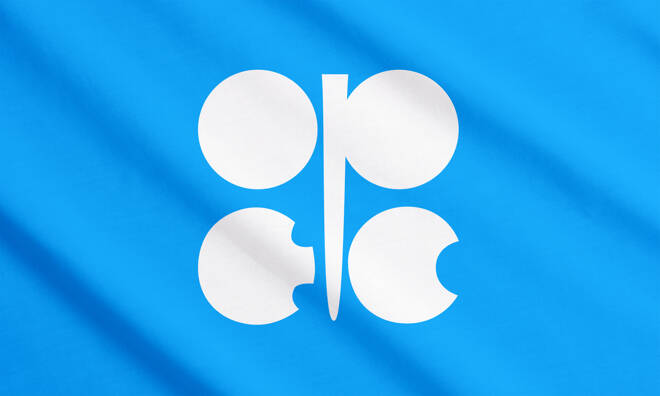Advertisement
Advertisement
Crude Oil Plunges on Reduced Chances of OPEC Production Deal
By:
Crude oil prices were down sharply on Tuesday as investors reduced the chances for deal to curb output from OPEC and other major exporters. According to
Crude oil prices were down sharply on Tuesday as investors reduced the chances for deal to curb output from OPEC and other major exporters. According to sources, Saudi Arabia has been unable to reach an agreement on production levels at an informal meeting being held in Algiers. Apparently, the differences between the Saudis and Iran are too vast to overcome.
The market may be expecting too much from these informal talks, prompting Saudi Energy Minister Khalid al-Falih to tell reporters, “This is a consultative meeting…We will consult with everyone else, we will hear the views, we will hear the secretariat of OPEC and also hear from consumers.”
Iranian Oil Minister Bijan Zanganeh said, “It is not time for decision-making.” Referring to the next informal OPEC meeting in Vienna on November 30.” He added, “We will try to reach agreement for November.”
U.S. WTI crude oil futures were down $1.50, or -3.27% at $44.43. Brent crude futures fell $1.64 or -3.5 percent at $45.71 per barrel.
December Comex Gold futures also traded weaker at $1328.90, down $15.20 or -1.13%. The market fell as investors moved money into the U.S. Dollar and U.S. equity markets on the view that U.S. presidential candidate Hillary Clinton performed better than her rival Donald Trump in Monday’s first debate. ‘
Since Clinton is the current front-runner, investors felt that her performance was good for higher-yielding assets. If Trump had performed better, the financial markets would’ve have suffered and gold would’ve have likely rallied due to geopolitical and financial uncertainty.
The U.S. Dollar rose against a basket of currencies with the Euro losing about 0.45% against the Greenback. The British Pound, however, was up 0.17%. The dollar also rose against the Japanese Yen before giving back most of its gains.
The demand for higher risk assets hurt the Japanese Yen and Euro the most since they are funding currencies. The Australian and New Zealand Dollars also attracted buyers because of their higher yields.
In U.S. economic news, the Conference Board’s Consumer Confidence Index hit 104.1 in September. This was better than the estimate of 99.0. However, it was down from August’s revised reading of 101.8. The number was the highest read since the last recession.
Additionally, the S&P CoreLogic Case-Shiller 20-City Composite Index rose 5.0 percent year over year, slightly below the 5.1 forecast increase. The September Markit Flash U.S. Services PMI report showed expansion with a 51.9 read versus a 51.1 estimate. The Richmond Federal Reserve Manufacturing Index for September showed a read of -8.
Later today, FOMC Member Stanley Fischer will give a speech. He is an ally of Fed Chair Janet Yellen. He has been known to mention the need for a rate hike by the end of the year. The markets are likely to react to any commentary on the timing of the next Fed rate hike.
About the Author
James Hyerczykauthor
James Hyerczyk is a U.S. based seasoned technical analyst and educator with over 40 years of experience in market analysis and trading, specializing in chart patterns and price movement. He is the author of two books on technical analysis and has a background in both futures and stock markets.
Advertisement
